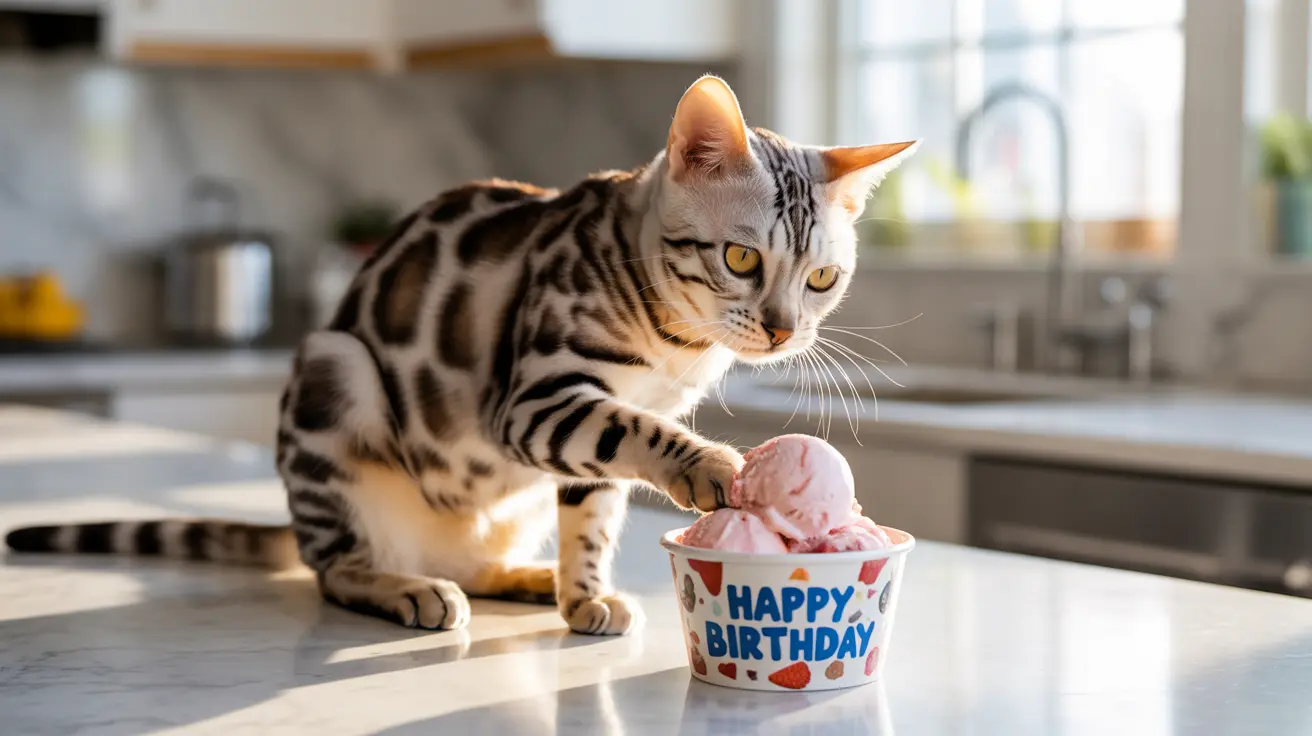Have you ever wondered why your cat seems drawn to your ice cream or desserts, despite scientific evidence suggesting they can't taste sweetness? This fascinating contradiction has puzzled cat owners for generations, and today we'll explore the surprising truth behind feline sweet preferences.
Recent scientific research has revealed that domestic cats are actually "sweet-blind" due to a genetic mutation affecting their taste receptors. While your furry friend might show interest in your dessert, their attraction has nothing to do with sweetness itself. Let's dive into the science behind this phenomenon and understand what's really driving your cat's curious behavior.
The Science of Feline Taste Buds
Unlike humans and many other mammals, cats have a unique genetic mutation that affects their ability to taste sweet flavors. This mutation specifically impacts the Tas1r2 and Tas1r3 genes, which normally work together to create sweet taste receptors. In cats, this genetic quirk means they physically cannot detect sweet flavors.
Scientific studies have confirmed that while cats can taste other flavors like salty, sour, bitter, and umami (savory), their taste nerves show zero response to sugary substances. This isn't a defect - it's actually an evolutionary adaptation that aligns perfectly with their natural carnivorous diet.
Why Your Cat Shows Interest in Sweet Foods
If cats can't taste sweetness, why do they sometimes beg for ice cream or show interest in desserts? The answer lies in other appealing characteristics of these foods:
Fat Content and Texture
Many sweet foods are rich in fat and have interesting textures that cats find appealing. Ice cream's creamy consistency and high fat content can be particularly attractive to cats, regardless of its sugar content.
Temperature and Novelty
The cool temperature of frozen desserts or the unusual texture of baked goods might pique your cat's natural curiosity. Cats are often interested in investigating new things in their environment, including different foods.
Protein and Dairy Components
Many desserts contain ingredients like eggs, milk, or cream that cats can detect and may find appealing due to their protein content or familiar dairy elements.
Health Implications and Safety Concerns
Understanding that cats can't taste sweetness is more than just an interesting fact - it has important health implications:
Cats are obligate carnivores, meaning their bodies are designed to process primarily meat-based proteins and fats. Their digestive systems aren't equipped to handle large amounts of carbohydrates or sugars, which can lead to various health issues including:
- Obesity
- Diabetes
- Digestive problems
- Dental issues
How to Safely Indulge Your Cat's Curiosity
Instead of sharing human sweets with your cat, consider these safer alternatives:
- Small pieces of plain, cooked meat
- Commercial cat treats formulated for feline nutrition
- Frozen treats made from cat-safe ingredients
- Interactive toys that satisfy their investigative nature
Frequently Asked Questions
Why can't my cat taste sweet foods like humans do?
Cats have a genetic mutation that prevents their sweet taste receptors from functioning, making them physically unable to detect sweet flavors.
If cats can't taste sweetness, why do they seem interested in desserts or ice cream?
Cats are attracted to other qualities in these foods, such as fat content, texture, temperature, or protein components, rather than the sweetness itself.
Is it safe to feed my cat sweets or sugary treats?
No, feeding cats sweets is not recommended as they can't properly digest sugars and carbohydrates, which may lead to health problems like obesity and diabetes.
What causes cats to prefer certain sweet-tasting fruits like cantaloupe if they can't taste sugar?
Cats may be attracted to certain fruits due to their amino acid content or aromatic compounds rather than their sweetness.
How does a cat's unique taste biology affect their dietary needs and health?
Their inability to taste sweetness reflects their evolution as obligate carnivores, indicating they need a primarily meat-based diet rich in proteins and fats rather than carbohydrates.
Understanding your cat's unique taste biology helps explain their seemingly contradictory behavior around sweet foods and reinforces the importance of providing them with an appropriate, meat-based diet that aligns with their natural nutritional needs.






